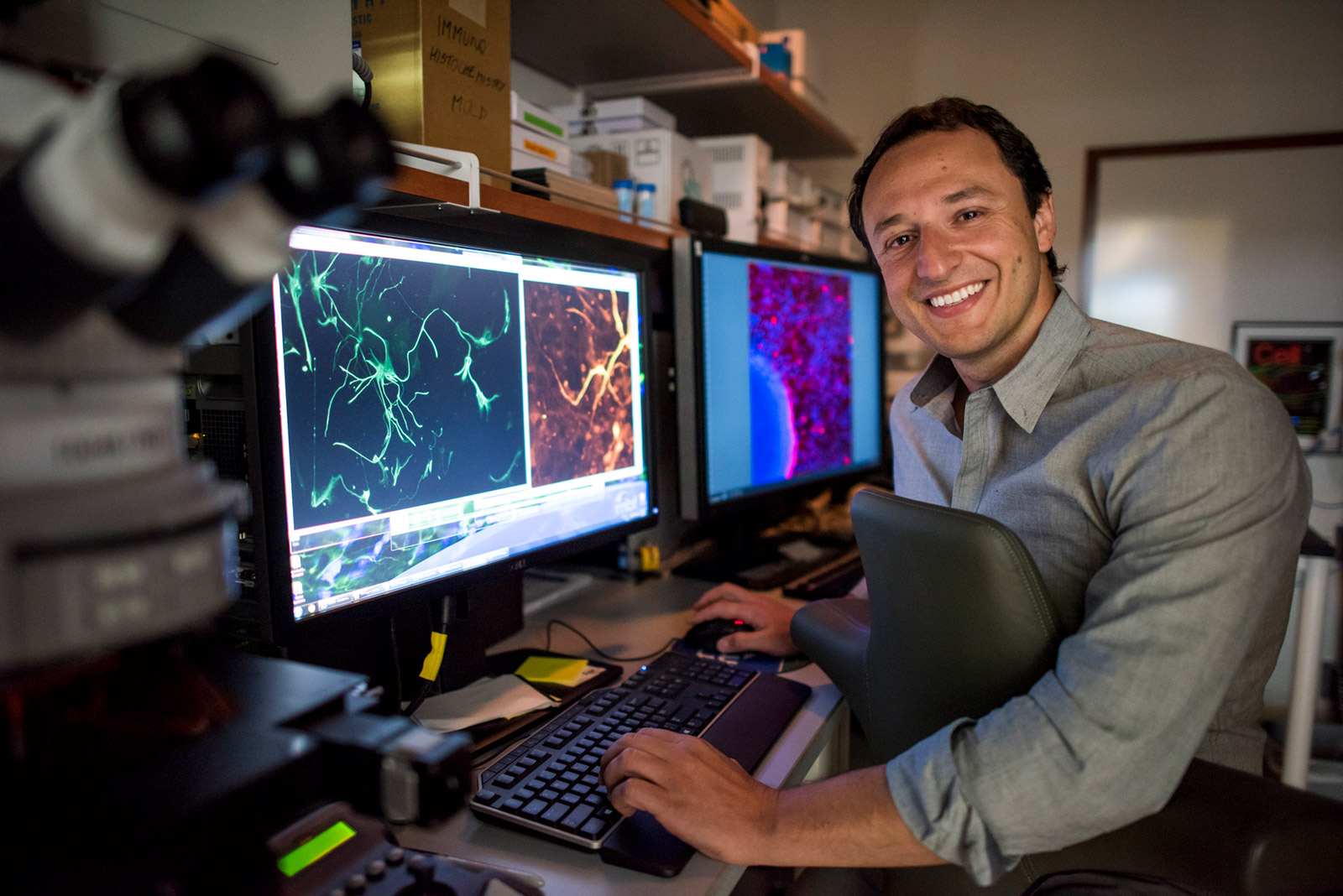Re-constructing the human brain in the lab
Alysson R. Muotri, Ph.D
Professor, University of California San Diego, School of Medicine, Department of Pediatrics and Department of Cellular & Molecular Medicine
The limited access to the developing human brain in uterus poses a challenge to understand how the human brain is formed and function. Human pluripotent stem cells offer a unique opportunity for scientists to model human neurodevelopment in controlled laboratoryl conditions. These brain organoids (aka, “mini-brains”) are self-assembled 3D neural structures that mimics early stages of embryonic and fetal development. Using this technology, scientists could, for example, prove causation between the circulating Brazilian Zika virus and the outbreak of birth defects. However, it was only last year that scientists learned how to generate functional brain organoids, opening the perspective to model neurological conditions that affect millions of people. Other applications of this technology include the study of brain evolution, the origin of consciousness, providing implications for space colonization and artificial intelligence. Intrigued to learn more? Listen to Dr. Muotri’s fascinating talk on how UC San Diego is leading the way in leveraging brain organoids to explore the mechanism behind numerous health conditions, including a first of its kind study on CBD Efficacy for Autism that is already underway.
This presentation was originally delivered at the March 4, 2020 meeting of the Group of 12, San Diego.



